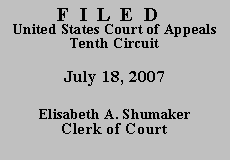

| LAURA AGEE, surviving spouse and
personal representative of
the Estate of Rick Agee, Plaintiff-Appellant, v. PURDUE PHARMACEUTICALS, L.P., |
|
Following back surgery, Mrs. Agee's husband Rick Agee, was prescribed OxyContin for pain relief. Three days later, he was found dead by his wife. An autopsy revealed toxic levels of oxycodone (the active ingredient in OxyContin) in his bloodstream and authorities concluded that he died of accidental, "acute oxycodone toxicity." Aplee. App. Vol. 1 at 46. In her lawsuit against Purdue (the manufacturer), Mrs. Agee claimed that because her husband took the medication as prescribed, his death was the result of a defect in the drug and/or a failure to warn.
To prove her claims, Mrs. Agee identified James O'Donnell as an expert witness. The essence of his proposed testimony was that an accumulation of oxycodone caused Mr. Agee's death. Purdue filed a motion in limine to exclude the proposed testimony and for summary judgment. Following a Daubert hearing, the trial court granted the motions and this appeal followed.
On appeal,
we review de novo the question of whether the district court applied the proper standard and actually performed its gatekeeper role in the first instance. We then review the trial court's actual application of the standard in deciding whether to admit or exclude an expert testimony for abuse of discretion. . . . Accordingly, we will not disturb the district court's ruling unless it is arbitrary, capricious, whimsical or manifestly unreasonable, or when we are convinced that the district court made a clear error of judgment or exceeded the bounds of permissible choice in the circumstances.
Dodge v. Cotter Corp., 328 F.3d 1212, 1223 (10th Cir. 2003) (internal citation and quotations omitted).
Rule 702 of the Federal Rules of Evidence codifies the Supreme Court's decision in Daubert v. Merrell Dow Pharm., Inc., 509 U.S. 579 (1993) and sets forth the standard that expert testimony must meet to be admissible in evidence. As part of its gate keeping function, and in addition to determining whether the proposed expert is qualified to offer an opinion, the trial court must also determine whether "(1) the testimony is based upon sufficient facts or data, (2) the testimony is the product of reliable principles and methods, and (3) the witness has applied the principles and methods reliably to the facts of the case." Fed. R. Evid. 702.
In determining the reliability of expert testimony, there are several nonexclusive factors that the trial court may consider, including (1) whether the expert's theory or technique can be and has been tested, (2) whether the theory or technique has been subjected to peer review and publication, (3) the known or potential rate of error of the technique or theory, and (4) the general acceptance of the theory or technique. Daubert, 328 F.3d at 593-94. Daubert itself, however, recognizes these factors are not definitive, and a trial court has broad discretion to consider other factors in determining reliability. Id. at 594-95.
We have thoroughly reviewed the record and the parties' briefs. Assuming as true all the facts proffered by Mrs. Agee, we affirm substantially for the reasons given by the district court. The record reflects that James O'Donnell used a computer program to determine the biological parameters a hypothetical person would need to have to reach the toxic levels of oxycodone found in Mr. Agee's bloodstream, assuming he took the medication as prescribed. As the trial court found, there was no scientific basis for Dr. O'Donnell's conclusion that Mr. Agee died from an accumulation of oxycodone, instead of an overdose, because he was unaware of any person with the physiological attributes produced by his computer modeling. This finding, which renders the proposed expert testimony unreliable, is supported by record.
We AFFIRM.
Entered for the Court
Circuit Judge
*. After examining the briefs and appellate record, this panel has determined unanimously to grant the parties' request for a decision on the briefs without oral argument. See Fed. R. App. P. 34(f); 10th Cir. R. 34.1(G). The case is therefore ordered submitted without oral argument. This order and judgment is not binding precedent, except under the doctrines of law of the case, res judicata, and collateral estoppel. It may be cited, however, for its persuasive value consistent with Fed. R. App. P. 32.1 and 10th Cir. R. 32.1.
1. Mrs. Agee agrees that if the trial court's order excluding the expert's proposed testimony was correct, summary judgment was proper.